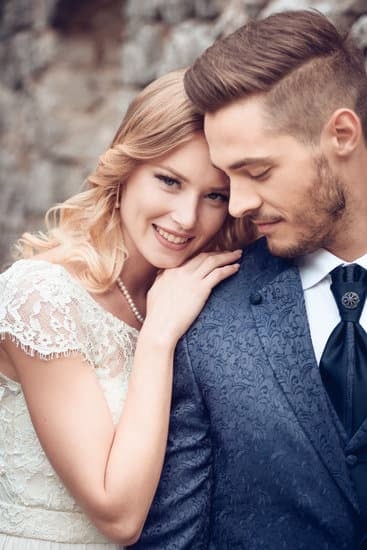A wedding officiator plays a vital role in the union of two individuals, as they are responsible for overseeing and solemnizing the marriage ceremony. From religious leaders to friends or family members, the officiator sets the tone for the entire event, making it a significant aspect of any wedding celebration. Choosing the right wedding officiator is essential to ensure that your special day is both meaningful and memorable.
The role of a wedding officiator goes beyond just conducting the ceremony; it involves setting the mood, delivering heartfelt words, and guiding the couple through their vows. They help create a personalized and unique experience that reflects the love and commitment shared between the bride and groom. Whether you opt for a traditional religious figure or someone close to you, selecting the perfect officiator is crucial in making your wedding day truly unforgettable.
In this article, we will explore various aspects related to wedding officiators-from how to choose the right one for your ceremony to understanding legal requirements for marriage licenses. We will also delve into DIY options for couples who want a more personal touch to their nuptials, as well as provide insights on how to customize your ceremony with the help of your officiator.
Join us as we delve into the world of wedding officiators and discover why they play such an integral role in creating lasting memories on your big day.
How to Choose the Right Wedding Officiator
When it comes to choosing the right wedding officiator for your special day, there are several key factors to consider. One of the most important aspects to think about is the style and tone of the ceremony you envision. Whether you desire a traditional, religious ceremony or a more modern and personalized approach, your officiator should align with your preferences. Take the time to discuss your vision with potential officiators and see if they are able to accommodate your wishes.
Another crucial factor to consider when selecting a wedding officiator is their level of experience and expertise. It is essential to choose someone who is well-versed in conducting weddings and can confidently guide you through the process. Ask about their previous experience, qualifications, and any training they may have undergone. A skilled officiator will not only ensure that your ceremony runs smoothly but also help create a meaningful and memorable experience for you and your guests.
Additionally, compatibility is key when choosing a wedding officiator. The relationship between you and your officiant should be built on trust, respect, and understanding. It’s essential to feel comfortable with them and confident in their ability to represent you on your wedding day.
Consider meeting with potential officiators beforehand to get a sense of their personality and communication style. Finding someone who resonates with you on a personal level can make a significant difference in how smoothly your ceremony unfolds.
Ultimately, selecting the right wedding officiator is a decision that requires careful thought and consideration. By evaluating factors such as ceremony style, experience, expertise, compatibility, and personal connection, you can ensure that you choose an officiant who will help create the perfect atmosphere for your special day. With the right person leading your ceremony, you can truly make your wedding day one to remember for a lifetime.
Different Types of Wedding Officiators
When it comes to choosing a wedding officiator for your special day, there are a variety of options to consider. One of the most traditional choices is a religious leader from your faith community, such as a priest, rabbi, minister, or imam. These officiators can bring a sense of spiritual significance to your ceremony and uphold any cultural or religious traditions that are important to you and your partner.
For couples who may not be affiliated with a specific religion or are looking for a more personalized touch, having a friend or family member officiate the wedding can be a meaningful option. This trend has been growing in popularity in recent years, as it allows for a more intimate and personalized ceremony experience. Your loved one can share stories and anecdotes about your relationship, making the ceremony truly unique and reflective of your journey together.
In addition to religious leaders and loved ones, there are also professional wedding officiants who specialize in creating customized ceremonies for couples of all backgrounds. These officiants are often experienced in performing weddings and have the skills to craft a ceremony that reflects your personalities and values. Whether you prefer a traditional ceremony or something more modern and unconventional, a professional wedding officiator can help bring your vision to life on your big day.
DIY Wedding Officiating
When it comes to planning your special day, some couples may opt to have a friend or family member act as the wedding officiator. This decision can add a personal touch to the ceremony and make the occasion even more meaningful. However, there are several important factors to consider when choosing this route.
First and foremost, ensure that the person you select is comfortable with public speaking and has the ability to officiate a wedding ceremony. Consider their presence, demeanor, and ability to connect with the audience. It is also essential that they are knowledgeable about the legal aspects of officiating a wedding and can guide you through the necessary paperwork.
Additionally, it is crucial to collaborate with your chosen friend or family member on crafting the ceremony script. You may want to discuss the tone, style, and content of the proceedings to ensure that it aligns with your vision for the day. Providing them with guidance or suggestions while also allowing room for personal touches can result in a ceremony that truly reflects your relationship and love for each other.
| DIY Wedding Officiating Tip | Advice |
|---|---|
| Choose someone comfortable with public speaking | Ensure they can confidently lead the ceremony |
| Collaborate on crafting ceremony script | Discuss tone, style, and content together |
Remember that while having a friend or family member officiate your wedding can be a beautiful choice, it is important to communicate openly about expectations, responsibilities, and any potential challenges that may arise. By working closely together and preparing thoroughly, you can create a memorable and heartfelt ceremony that celebrates your love in a unique way.
Legal Requirements
When it comes to your wedding day, one of the crucial aspects to consider is ensuring that your marriage is legally binding. This is where understanding the legal requirements of hiring a wedding officiator and obtaining a marriage license becomes essential. In most states, the wedding officiator plays a pivotal role in solemnizing your marriage and making it official in the eyes of the law.
Marriage License
Before your wedding ceremony takes place, you will need to obtain a marriage license from your local government or county clerk’s office. This legal document grants you the permission to get married and serves as proof of your upcoming nuptials. The process typically involves filling out an application, providing identification, and paying a fee. Make sure to check the specific requirements in your state regarding when and where to apply for a marriage license.
Choosing a Wedding Officiator
When selecting a wedding officiator, it’s important to ensure that they are legally able to perform marriages in your state. Religious leaders such as priests, rabbis, ministers, or pastors are usually authorized by their faith group to solemnize weddings.
Civil officiants like judges, justices of the peace, or ordained individuals may also have the authority to marry couples. Make sure to clarify with your chosen officiator about their credentials and any additional paperwork needed for the marriage to be legally recognized.
Legal Responsibilities
As part of their role, a wedding officiator is responsible for completing and signing the marriage license after the ceremony. This document must then be filed with the appropriate authorities within a specified timeframe to legalize your union officially. It’s essential to communicate with your officiator about these legal responsibilities beforehand so that everything runs smoothly on your big day.
Personalizing Your Ceremony
When it comes to personalizing your wedding ceremony, working closely with your wedding officiator can make all the difference. One of the key ways to customize your ceremony is by incorporating meaningful rituals or traditions that reflect your relationship and values. Your officiator can help guide you in selecting the right elements to include, whether it’s a unity candle lighting, a sand ceremony, or a handfasting ritual.
Another way to personalize your ceremony is through your vows. Your wedding officiator can assist you in crafting vows that are heartfelt and unique to you as a couple. Whether you choose to write your own vows or go with traditional ones, your officiator can offer advice on structure, tone, and length to ensure they resonate with both you and your guests.
In addition to rituals and vows, music selection plays a significant role in personalizing your ceremony. Collaborate with your wedding officiator to choose songs that hold special meaning for you and your partner. From walking down the aisle to the recessional, the music sets the tone for each part of the ceremony. Your officiator can work with musicians or DJs to coordinate the timing of each song for maximum impact.
| Element of Personalization | Description |
|---|---|
| Rituals and Traditions | Incorporating meaningful rituals such as unity candle lighting or handfasting |
| Custom Vows | Crafting personalized vows with assistance from the officiator |
| Music Selection | Collaborating on choosing songs that hold special meaning for the couple |
Officiator Etiquette
When it comes to selecting a wedding officiator for your special day, it is essential to consider not only their ability to perform the ceremony but also their conduct and etiquette during the event. The right officiator can set the tone for your wedding ceremony and ensure that everything runs smoothly. Here are some tips on the proper behavior and decorum that a wedding officiator should uphold during the ceremony:
- Arrive early: A professional wedding officiator should arrive at the venue well in advance to familiarize themselves with the surroundings and ensure they are prepared for the ceremony.
- Dress appropriately: It is important for a wedding officiator to dress in attire that is respectful and appropriate for the occasion. Whether it’s formal attire or a specific outfit requested by the couple, they should adhere to any dress code provided.
- Respect religious/cultural traditions: If the ceremony includes specific religious or cultural traditions, the officiator should respect and honor these customs throughout their role in the ceremony.
Moreover, a wedding officiator should maintain a professional demeanor throughout the ceremony. This includes speaking clearly and confidently, maintaining eye contact with the couple, and addressing guests respectfully. Additionally, they should be mindful of their body language and gestures to convey sincerity and warmth during this special moment.
Remember that your chosen wedding officiator plays a significant role in uniting you and your partner in marriage. By ensuring that they exhibit proper etiquette and behavior during the ceremony, you can create a memorable and meaningful experience for you, your partner, and all your guests on this joyous occasion.
Memorable Wedding Officiating Stories
One of the most cherished aspects of a wedding ceremony is the role played by the wedding officiator. It is the officiator who sets the tone for the entire event, guiding the couple through their vows and symbolizing their union.
Through heartfelt words and meaningful gestures, these officiators have the power to make a lasting impact on the couple and their guests. Many couples look back on their wedding day with fond memories of the special moments shared with their chosen officiator.
Here are some unforgettable wedding officiating stories that highlight the importance of this role in a couple’s special day:
- Tom and Sarah had decided to have a close friend officiate their wedding ceremony. Despite not being a professional officiator, their friend poured his heart and soul into creating a personalized ceremony script that perfectly captured the essence of their relationship. His touching words brought tears to everyone’s eyes and made the ceremony truly memorable.
- Emily and Jack opted for a religious leader from their community to officiate their wedding. The pastor took the time to get to know them as a couple and incorporated personal anecdotes into his sermon. His warmth and charisma filled the room with love and joy, making it a truly magical moment for Emily and Jack.
- Kimberly and Michael went above and beyond to find a non-traditional officiator for their outdoor wedding ceremony – a local poet known for her inspiring verses. The poet crafted a beautifully poetic script that spoke to Kimberly and Michael’s souls, making them feel like they were surrounded by art and love during their exchange of vows.
These real-life experiences serve as testaments to the importance of choosing the right wedding officiator – someone who understands your unique story as a couple and can bring it to life in a memorable way on your special day. Whether you opt for a religious leader, friend, family member, or even a professional celebrant, finding an officiator who resonates with you is key to creating an unforgettable wedding experience.
Conclusion
In conclusion, the role of a wedding officiator cannot be underestimated when it comes to your special day. The wedding officiator not only solemnizes the ceremony but also sets the tone for the entire event.
From religious leaders to friends or family members, there are various options available for officiating a wedding, each bringing their own unique touch to the ceremony. It is crucial to carefully consider factors such as personal connection, style, and values when choosing the right wedding officiator.
Choosing the perfect wedding officiator can truly elevate your ceremony and make it an unforgettable experience for both you and your guests. Whether you opt for a traditional religious leader or decide to have a close friend or family member perform the rites, the key is to ensure that they understand and respect your vision for the ceremony.
Their ability to bring warmth, sincerity, and individuality to the proceedings can create lasting memories that you will cherish for years to come.
In essence, the wedding officiator plays a significant role in not just legalizing your union, but also in symbolizing the love and commitment between you and your partner. By personalizing your ceremony with their help, you can make it a true reflection of your relationship and values.
Remember that with careful planning, consideration of legal requirements, and attention to etiquette, your chosen wedding officiator can help craft a beautiful and meaningful ceremony that leaves a lasting impact on your wedding day.
Frequently Asked Questions
What Does Officiant Mean in a Wedding?
An officiant in a wedding is the person who leads the ceremony and performs the marriage rites. They are responsible for guiding the couple through their vows, pronouncing them married, and signing the marriage license.
What Does the Officiant Say at a Wedding?
During a wedding ceremony, the officiant typically sets the tone by welcoming guests, sharing stories about the couple or offering words of wisdom. They may lead readings or prayers, provide guidance on marriage, and facilitate the exchange of vows and rings. The officiant’s words often focus on love, commitment, and the significance of marriage.
What Is Required to Officiate a Wedding in Florida?
To officiate a wedding in Florida, individuals must be legally ordained through a religious organization or have obtained a civil celebrant designation from the state. Officiants must register with county clerks before performing weddings and adhere to state laws regarding marriage ceremonies. Additionally, they must ensure that all legal requirements are met, including submitting marriage certificates after the ceremony.

I have been involved in marriages for over 20 years helping couples and singles understand more about them.





